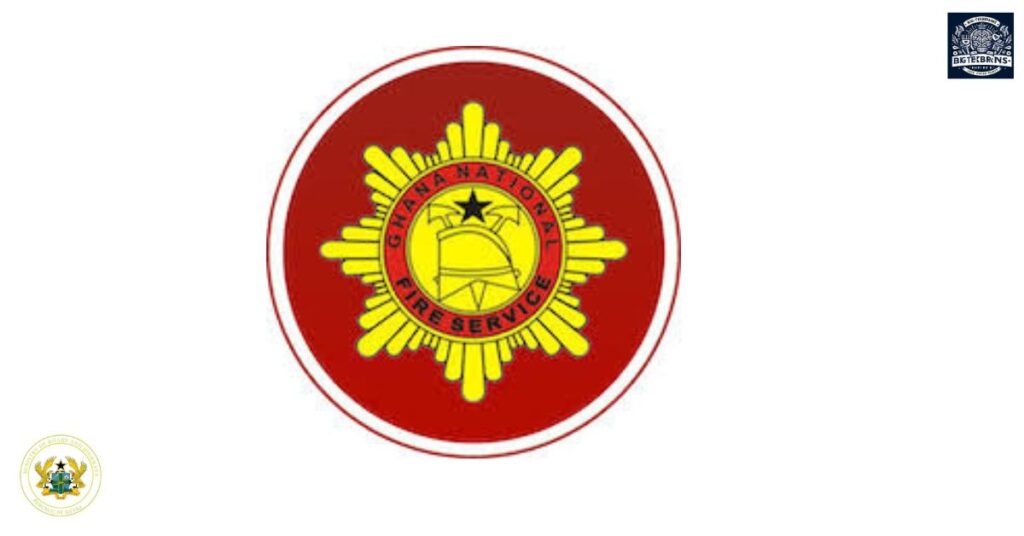Excerpt
The Ghana National Fire Service (GNFS) is a governmental agency that safeguards lives and property from fire-related incidents and other emergencies. Below is an overview of its job roles, constitutional mandates, leadership structure, ranks, units, recruitment processes, leadership promotions, appointment of overseers, and operational procedures.
Job Roles
The GNFS performs several key functions to achieve its objectives:
Public Fire Education:
- Organizing programs to raise awareness about fire hazards and the importance of individual roles in fire prevention.
Technical Advisory:
- Providing guidance on building plans, including machinery and structural layouts, to ensure safety and facilitate emergency escapes.
Inspection and Licensing:
- Conducting inspections of premises and issuing fire certificates to ensure compliance with safety standards.
Firefighting and Rescue Operations:
- Engaging in firefighting, rescuing individuals, and handling other emergencies such as road traffic collisions.
Enforcement of Fire Safety Regulations:
- Ensuring adherence to fire safety regulations and prosecuting individuals or entities that violate these laws.
These roles are outlined in the Ghana National Fire Service Act, 1997 (Act 537).
Constitutional Mandate
The GNFS operates under the Ghana National Fire Service Act, 1997 (Act 537), which mandates the Service to prevent and manage undesired fires and related matters. The Act emphasizes the importance of public education, technical advice, inspections, and enforcement of fire safety regulations.
Leadership and Ranks
The leadership structure of the GNFS is hierarchical, comprising various ranks:
Chief Fire Officer (CFO):
- The highest-ranking officer and Chief Executive Officer of the GNFS.
Deputy Chief Fire Officer (DCFO):
- Assists the CFO and oversees specific directorates.
Assistant Chief Fire Officer (ACFO):
- Manages departments within the Service.
Divisional Officer Grades I, II, and III (DO I, DO II, DO III):
- Oversee divisions and coordinate operations.
Assistant Divisional Officer Grades I and II (ADO I, ADO II):
- Assist in managing divisions and operations.
Cadet Officer (CO):
- Undergo training to become senior officers.
Junior Ranks:
- Include positions from Recruit Fireman/Woman to Station Officer Grade I, responsible for various operational duties.
Offices and Units
The GNFS is organized into several directorates, departments, and units to effectively carry out its functions:
Operations Department:
- Handles firefighting and rescue operations.
Fire Safety Department:
- Focuses on fire prevention, inspections, and public education.
Finance and Administration Department:
- Manages financial and administrative affairs.
Human Resource/Training Department:
- Oversees recruitment, training, and staff development.
Logistics Department:
- Ensures the availability and maintenance of equipment and supplies.
Research and Development Department:
- Conducts research to improve fire safety measures and technologies.
Rural Fires Department:
- Addresses fire-related issues specific to rural areas.
Technical Services Department:
- Provides technical support and maintenance services.
Recruitment and Leadership Promotions
The GNFS recruitment process involves several steps:
Purchase of Application Voucher:
- Prospective applicants must purchase an electronic voucher from designated banks.
Online Application:
- Applicants complete and submit an online application form using the voucher code.
Screening and Selection:
- Shortlisted candidates undergo physical and medical examinations, aptitude tests, and interviews.
Training:
- Successful candidates undergo training at the Fire Academy and Training School (FATS).
Promotions within the GNFS are based on merit, experience, and performance. Officers are required to pass promotional examinations and meet specific criteria to advance to higher ranks.
Appointment of Overseers
The President of Ghana appoints the Chief Fire Officer (CFO) upon the advice of the Fire Service Council. The CFO, in turn, appoints officers to various leadership positions within the Service, ensuring that qualified and competent individuals oversee the different directorates, departments, and units.
Operations
The GNFS carries out its operations through a structured approach:
Emergency Response:
- Responding promptly to fire outbreaks and other emergencies to mitigate damage and save lives.
Fire Prevention:
- Conducting regular inspections, enforcing safety regulations, and issuing fire certificates to compliant establishments.
Public Education:
- Engaging communities through educational programs to promote fire safety awareness.
Training and Drills:
- Regularly training personnel to maintain readiness and efficiency in emergency response.
Collaboration:
- Working with other emergency services and organizations to enhance overall public safety.
Reference:
- https://gnfs.gov.gh/structure.php
- https://gnfs.gov.gh/recruitment.php
- https://ghanalegal.com/laws_subdomain/acts/id/148/ghana-national-fire-service-act-/

